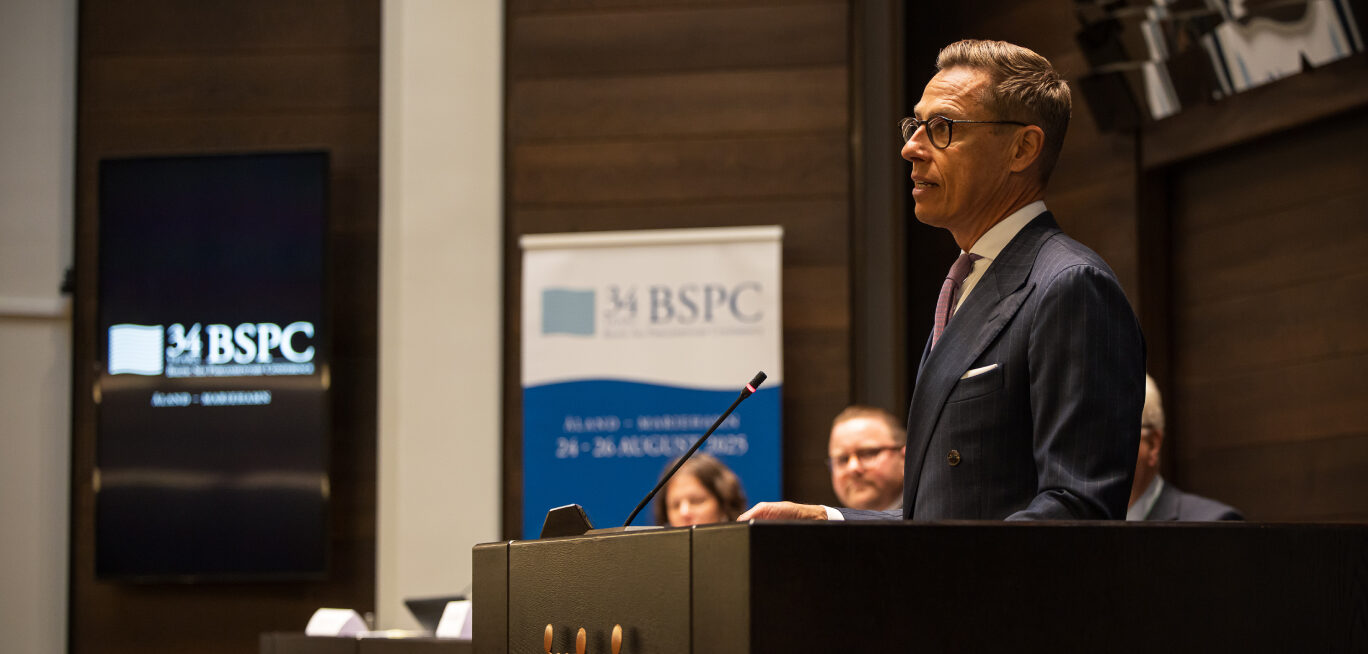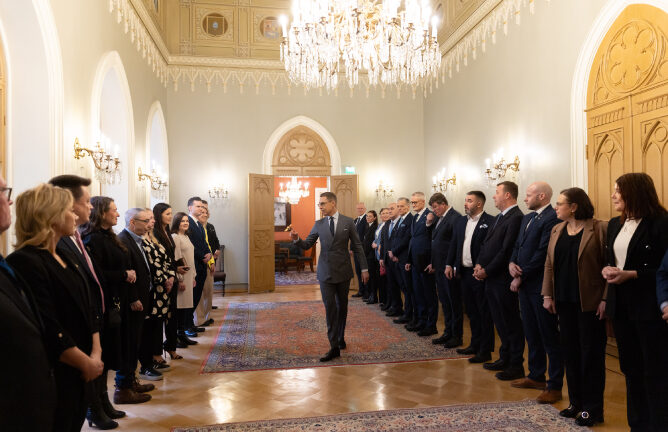Check against delivery
Dear Speaker of the Ålands lagting,
Distinguished parliamentarians,
It is lovely to be back here on the Åland Islands. I remember sailing here with my family in the summer holidays when I was a child. This is one of the gems of the beautiful Finnish archipelago.
The Baltic Sea obviously unites us coastal states. We share many common interests, such as navigation, trade and culture, as well as a sensitive marine environment. But one country has decided to act in a way that undermines the safety of the others.
As long as Russia is not willing to take responsibility for the safety and security of our common sea, this responsibility falls more heavily on us.
In 2006, while I was a Member of the European Parliament, I wrote a report on a Baltic Sea Strategy for the Northern Dimension, together with Toomas Hendrik Ilves and others. Security, infrastructure and energy supply were the key topics back then, but many things have changed.
***
On 24 February 2022, Russia launched a full-scale invasion of Ukraine. This marked a turning point in world history. I have described this as the 1918, 1945 and 1989 moment of our generation. We do not know where exactly the world is going, but we do know that it is changing. There is no going back.
Following the Second World War, the UN Charter outlawed the use of force between states, except in self-defence or as authorised by the Security Council. The UN Charter forms the basis of a world order in which wars of conquest are illegal – and they must remain so. But there is no denying that the world of rules and multilateral cooperation is under increasing pressure.
The consequences of Russia’s war of aggression are being felt around the world, not least in the Baltic Sea region. Relations between Russia and the other Baltic Sea countries have been frozen. Establishing relations between Russia and the rest of Europe, in one form or another, will only be possible once a just and lasting peace has been achieved in Ukraine.
These new relations will also look very different from those that existed before Russia started its war of aggression. We cannot turn back the tide of history. Russia has violated the basic principles of international law.
In the Baltic Sea region, the changes in our security landscape have also brought about positive developments. Notably, they have encouraged closer cooperation between like-minded, democratic nations in the region.
***
The accession of Finland and Sweden to NATO – following Russia’s war of aggression against Ukraine – opened new possibilities for our security policy cooperation.
In January, I had the honour of hosting the first-ever Baltic Sea NATO Allies Summit in Helsinki. The meeting was organised in response to the growing number of serious security incidents in the Baltic Sea.
These incidents have increased due to Russia’s so-called ‘shadow fleet’, consisting of inadequately insured, ageing vessels in substandard condition. The shadow fleet also poses an environmental risk to the Baltic Sea, an area that is particularly sensitive in this respect.
At the Helsinki Summit, our aim was to develop a robust joint response to any actions, whether negligent or malicious, that damage or threaten the functioning of critical undersea infrastructure.
We underlined that any such response must comply with the law of the sea, including the freedom of navigation.
As a concrete joint effort, NATO launched “Baltic Sentry”, a new mission aimed at improving situational awareness and deterring hostile activities.
Regional bodies have also stepped up their efforts. For example, the Council of the Baltic Sea States has decided to boost regional cooperation on protecting undersea infrastructure.
I would particularly like to highlight the valuable work carried out by our authorities, including the border guard, the law enforcement, and the navy.
This is what we call the Finnish Model. Essentially, it involves a swift and decisive response, in accordance with international law, by competent and capable authorities. This approach has proven crucial for countering hybrid threats in the Baltic Sea.
The practical, long-standing cooperation between our countries’ authorities, for example on maritime surveillance, keeps our neighbourhood safe.
Whether here in the Baltic Sea region or more broadly at a European or global level, we must understand the changes that are taking place and adapt to them. This requires that we act together, resolutely.
***
Dear parliamentarians,
I would like to congratulate the Baltic Sea Parliamentary Conference and this year’s host, Ålands lagting, on organising this conference.
Åland is unique as an autonomous, demilitarised, Swedish-speaking region of the Republic of Finland. The history and status of Åland are a prime example of how multilateral cooperation can produce successful and lasting solutions. This makes Åland the perfect venue for your meeting.
I always encourage parliamentarians to forge international connections. The Baltic Sea Parliamentary Conference is important, not least because the security situation in our region has changed, and we continuously face new issues of regional relevance. I also find it very valuable that sustainable environmental, social and economic development of the Baltic Sea region is a high priority on your agenda.
I wish you all a successful conference.


